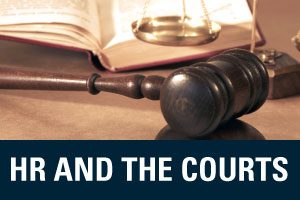by CUPA-HR | March 6, 2024
On March 5, 2024, the Dartmouth College men’s basketball team voted 13-2 in favor of joining the Service Employees International Union. The election marks the first time in nearly a decade that student-athletes have been authorized to vote for union representation and may be the first case in which their election results in certified representation.
Background
On February 5, the National Labor Relations Board Regional Director Laura Sacks determined that players on the Dartmouth men’s basketball team are employees under the National Labor Relation Act and are thus eligible to unionize. The decision argues that the student-athletes are employees because Dartmouth has the “right to control the work performed by” the players on the team and players receive several benefits, including, but not limited to, lodging, meals, gear and training. Sacks’s decision ordered a secret-ballot election for representation, allowing all 15 players on the roster to determine whether or not to unionize.
On February 29, Dartmouth filed a request to the NLRB to reconsider the decision made by the regional director and to place a stay on the election or impound the ballots during the reconsideration period. The NLRB rejected these requests to reconsider the decision and stay the election, allowing the election to move forward as scheduled.
On March 5, before the 13-2 vote, Dartmouth appealed the regional director’s decision to recognize the student-athletes as employees. The appeal asked the NLRB to review and reverse the regional director’s decision and dismiss the petition, making the following arguments in favor of doing so:
- The NLRB regional director inaccurately defined a student-athlete as an employee.
- The NLRB regional director contradicted precedent set by a 2015 NLRB decision involving the Northwestern University men’s football team by asserting jurisdiction in this case.*
- There will be several adverse and unintended consequences for institutions and players if student-athletes are found to be employees, including potential immigration and Title IX issues.
Looking Ahead
The SEIU has five days to respond to this appeal, after which the NLRB will consider both motions. The review by the NLRB, along with any further legal challenges that could go all the way to the U.S. Supreme Court, might significantly delay the union’s official recognition and the start of collective bargaining negotiations. These processes could take months or even longer to complete.
Several lawsuits challenging NCAA policies are also ongoing, and other recent NLRB decisions and complaints further challenge the NCAA’s structure and question the classification of student-athletes as employees. Last month, a district court judge in Tennessee issued a preliminary injunction that bars the NCAA from enforcing its policy prohibiting incoming student-athletes from capitalizing on name, image, and likeness deals prior to enrolling at a college or university. Additionally, the NLRB has also issued a complaint against the University of Southern California, the PAC-12 Conference and the NCAA, alleging the three have misclassified USC’s football and men’s and women’s basketball players as student-athletes rather than employees and that they are joint employers of the athletes. The NLRB complaint is currently being challenged in court.
The establishment of a student-athlete union is a divergence from the NCAA’s amateurism standards; for example, unionized players gain opportunities to negotiate compensation and working conditions related to practice hours and travel. With unionized players empowered to negotiate, the landscape of collegiate athletics may undergo a significant shift.
CUPA-HR will keep members apprised of upcoming developments as it relates to this case.
*In 2015, the NLRB declined to assert jurisdiction in a case involving the Northwestern University men’s football team. Prior to issuing the decision, the men’s football team had voted for representation, but the NLRB ultimately dismissed the petition filed by the union that planned to represent the unit. The NLRB held that, though Northwestern is a private institution, it is a part of the Big Ten Conference, which was comprised of all public schools except for Northwestern at the time.


